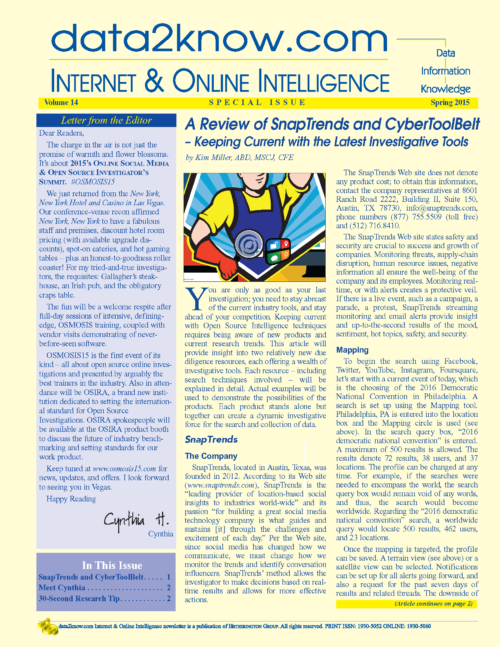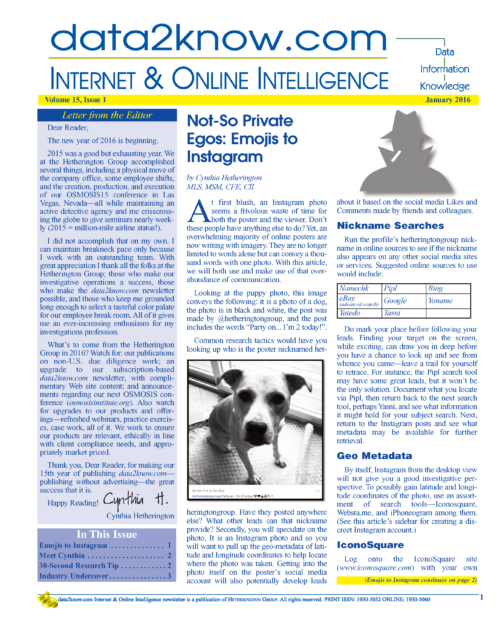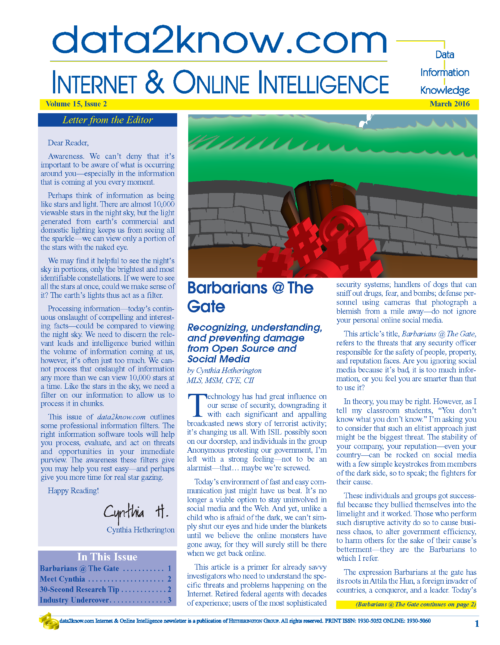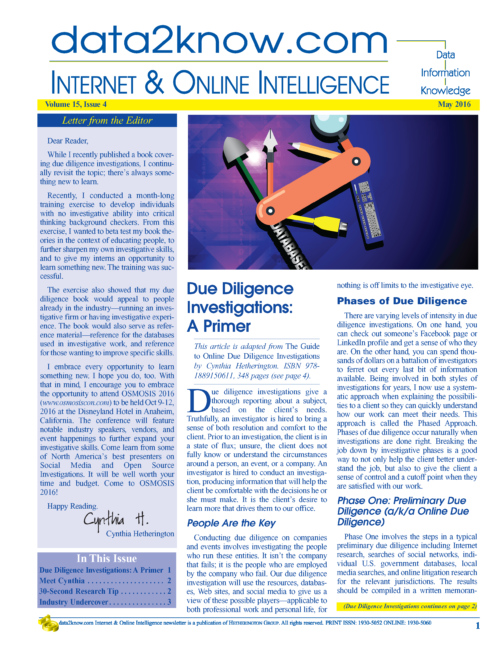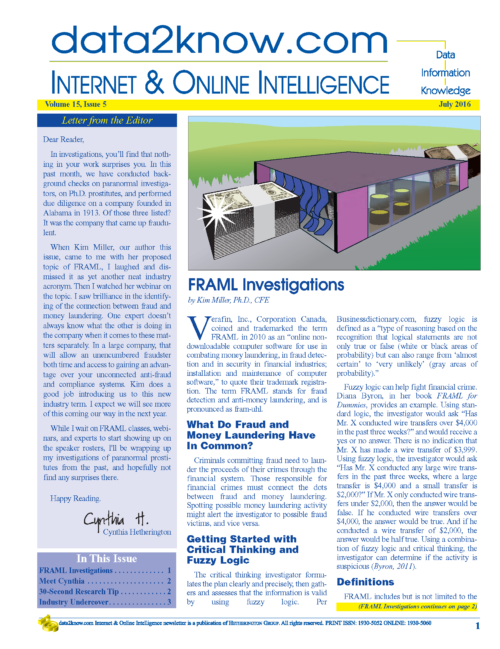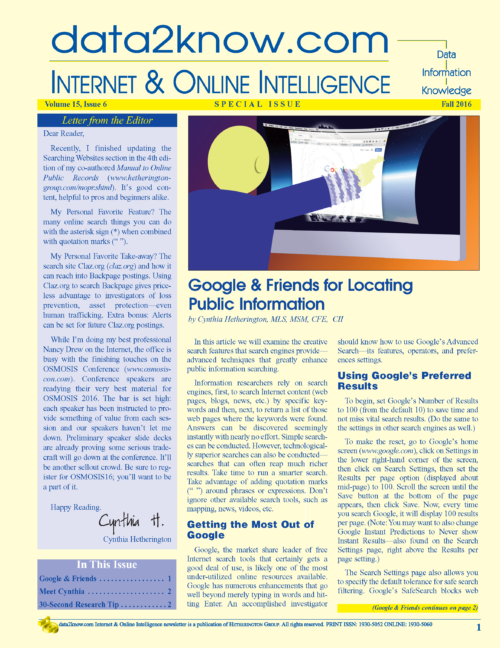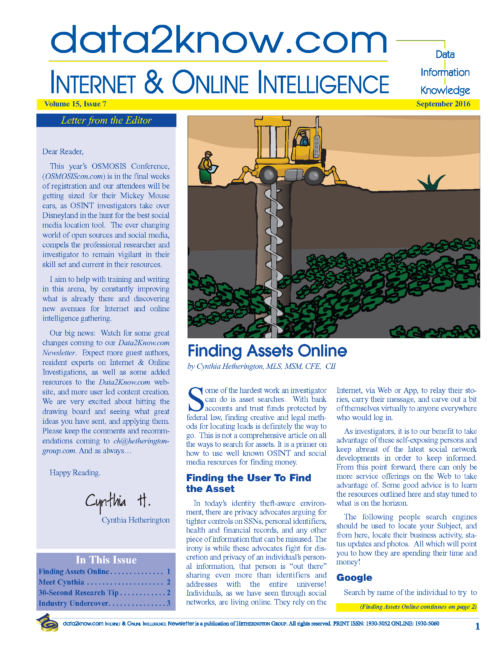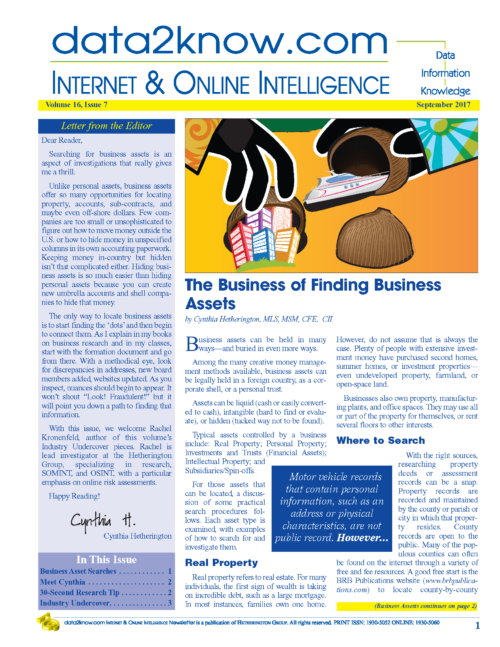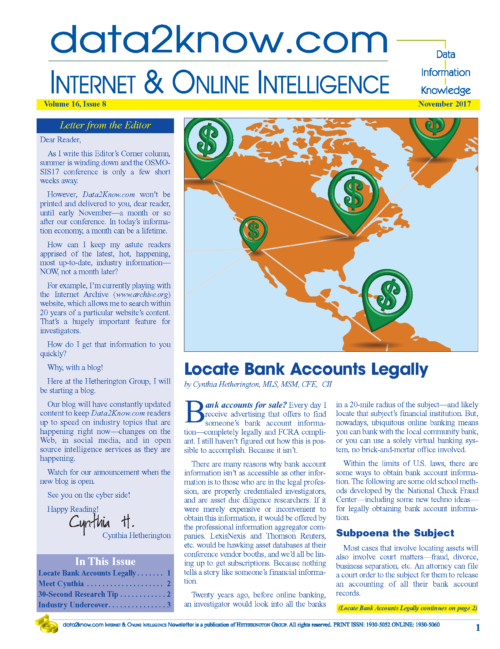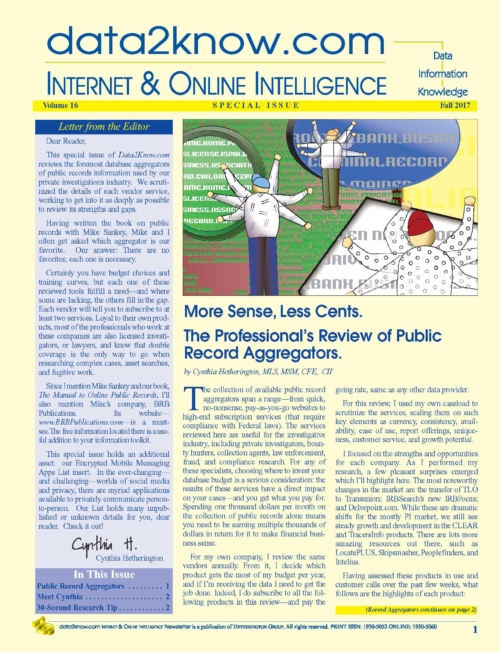-
Data2Know Vol. 15, No. 1
$15.00Not-so private egos: Emojis to Instagram
An overwhelming majority of online posters are now writing with imagery. They are no longer limited to words alone but can convey a thousand words with one photo. With this article, we will both use and make use of that overabundance of communication. -
Data2Know Vol. 15, No. 2
$15.00Barbarians @ The Gate
This article’s title, Barbarians @ The Gate, refers to the threats that any security officer responsible for the safety of people, property, and reputation faces. Are you ignoring social media because it’s bad, it is too much information, or you feel you are smarter than that to use it? -
Data2Know Vol. 15, No. 3
$15.00Know Your Candidate
Discretion is imperative in investigative work. Locating any and all information on opposing parties is viewed as clandestine and made for TV espionage, no matter how open source and obvious the investigating may be. Kim’s accounting of her case and the client’s behavior—and most importantly, the research tactics she used—should serve as a primer for your future candidate investigation cases. -
Data2Know Vol. 15, No. 4
$15.00Due Diligence Investigations: A Primer
Due diligence investigations give a thorough reporting about a subject, based on the client’s needs. Truthfully, an investigator is hired to bring a sense of both resolution and comfort to the client. Prior to an investigation, the client is in a state of flux; unsure, the client does not fully know or understand the circumstances around a person, an event, or a company. An investigator is hired to conduct an investigation, producing information that will help the client be comfortable with the decisions he or she must make. It is the client’s desire to learn more that drives them to our office. -
Data2Know Vol. 15, No. 5
$15.00FRAML Investigations
The term FRAML stands for fraud detection and anti-money laundering. Criminals committing fraud need to launder the proceeds of their crimes through the financial system. Those responsible for financial crimes must connect the dots between fraud and money laundering. Spotting possible money laundering activity might alert the investigator to possible fraud victims, and vice versa. -
Data2Know Vol. 15, No. 6
$15.00Google & Friends for Locating Public Information
This article examines the creative searching features and offerings provided by search engines. Using these advanced techniques greatly enhances the searching of public information. Learn how to get the most out of Google; it's preferred results, operators, symbol functions, proximity searching and more. -
Data2Know Vol. 15, No. 7
$15.00Finding Assets Online Some of the hardest work an investigator can do is asset searches. With bank accounts and trust funds protected by federal law, finding creative and legal methods for locating leads is definitely the way to go. This is not a comprehensive article on all the ways to search for assets. It is a primer on how to use well known OSINT and social media resources for finding money. -
Data2Know Vol. 16, No. 5
$15.00Public Records Search Pitfalls
This article focuses on some of the pitfalls that the modern investigator needs to be wary of when it comes to public record searching. Learn some of the issues you may come across and how to avoid them. Additional commentary from experts in the public records fields gives further insight into the public records industry. -
Data2Know Vol. 16, No. 7
$15.00The Business of Finding Business Assets Business assets can be held in many ways—and buried in even more ways. Among the many creative money management methods available, business assets can be legally held in a foreign country, as a corporate shell, or a personal trust. Assets can be liquid (cash or easily converted to cash), intangible (hard to find or evaluate), or hidden (tucked way not to be found). Typical assets controlled by a business include: Real Property; Personal Property; Investments and Trusts (Financial Assets); Intellectual Property; and Subsidiaries/Spin-offs. For those assets that can be located, a discussion of some practical search procedures follows. Each asset type is examined, with examples of how to search for and investigate them. what you pay for. -
Data2Know Vol. 16, No. 8
$15.00Locate Bank Accounts Legally
Bank accounts for sale? Every day we receive advertising that offers to find someone’s bank account information—completely legally and FCRA compliant. It's still hard to figured out how this is possible to accomplish. Because it isn't. So what ways are legal, ethical and will get results? -
Professional's Review of Public Record Aggregators
The collection of available public record aggregators span a range—from quick, no-nonsense, pay-as-you-go websites to high-end subscription services (that require compliance with Federal laws). The services reviewed here are useful for the investigative industry, including private investigators, bounty hunters, collection agents, law enforcement, fraud, and compliance research. For any of these specialists, choosing where to invest your database budget is a serious consideration: the results of these services have a direct impact on your cases—and you get what you pay for.

